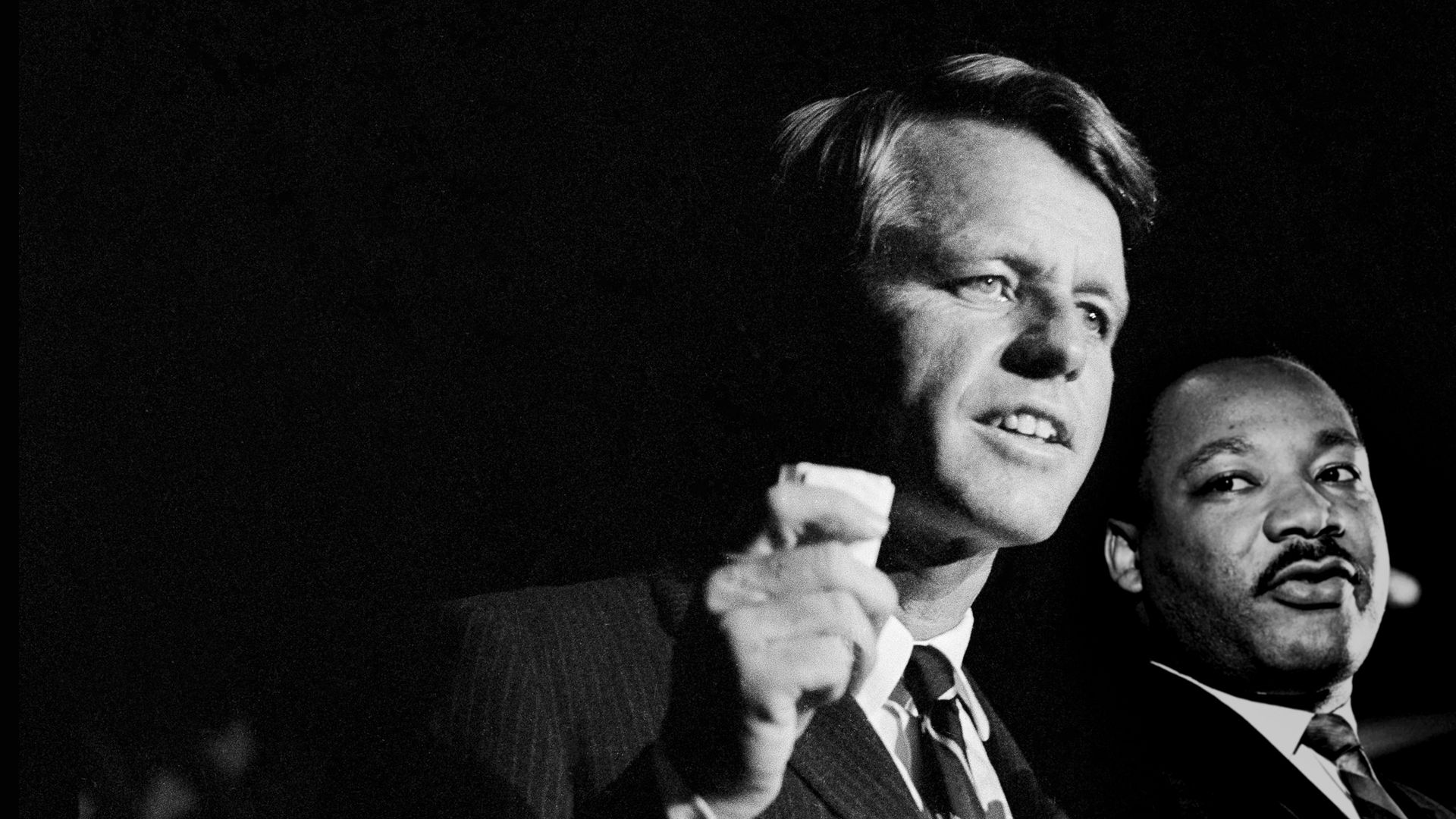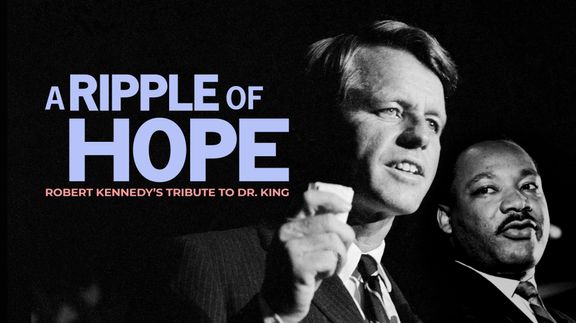

A Ripple of Hope
On April 4, 1968, in the wake of the assassination of Martin Luther King Jr., Robert F. Kennedy made one of the most influential speeches of that turbulent time. It was a moving, extemporaneous plea for peace and reconciliation. By risking his own life and defying city officials, Kennedy helped Indianapolis avert the violence that swept the rest of the country. The hopeful tone defines his legacy.
On April 4, 1968, in the wake of the assassination of Martin Luther King Jr., Robert F. Kennedy made one of the most influential speeches of that turbulent time. It was a moving, extemporaneous plea for peace and reconciliation. By risking his own life and defying city officials, Kennedy helped Indianapolis avert the violence that swept the rest of the country. The hopeful tone defines his legacy.
Related Articles
View All3 of Martin Luther King, Jr.'s Powerful Messages
Though Martin Luther King, Jr. is most famous for his 'I Have a Dream' speech, he gave over 2,000 speeches to audiences across America and the world before he was assassinated.…
Chicago ’68: The Democratic National Convention that Fractured America
Chicago’s 1968 Democratic National Convention saw protesters face off against enraged police officers outside while the official delegates fought brutal political battles inside.…
1968: A Tumultuous Year
The social and political turbulence of the Sixties came to a head in 1968. Night after night, viewers tuned in to the TV news to witness war, assassinations, demonstrations,…
What Is Whiteness? How the Idea of a 'White Race' Came to Exist in America
“Whiteness” is a relatively new category, used to describe a race that (some historians argue) doesn’t actually exist. What can it help us understand about America today?
Our Carnegie Library: How a Robber Baron's Legacy Benefited One Small Town – and All of America
Andrew Carnegie was the world's richest man, hated by many for his opposition to organized labor. But in his last years, he gave away most of his fortune to benefit working…
The Real Alexander Hamilton: Foe of Slavery – or Enabler?
Founding Father Alexander Hamilton was opposed to slavery, yet at times of his life he participated in the institution, and even suppressed his personal opinions in order to “form…
The Mattachine Society & LGBTQ History
The 21st century has had rapid progress for members of the LGBTQ community. But in fact, recent advances in gay rights stand on a foundation that was laid by courageous activists…